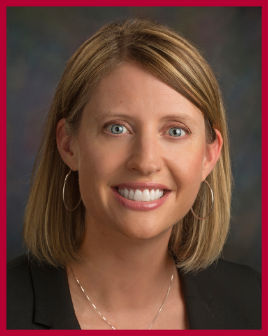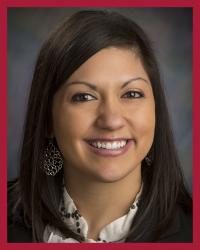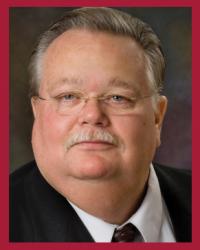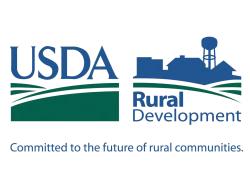A Moment with the CEO
BY SUZANNE LANE

Working Through COVID-19
As I’m sure many communications begin from electric cooperative leaders across the country, mine will be no different — since my last update, the world has dramatically changed. Just over three short months ago, most parts of the U.S. had not experienced any confirmed cases or exposures to the novel coronavirus known simply as COVID-19. Schools were still in session. People were still traveling for business and pleasure. Restaurants were still serving meals inside their establishments. Factories were still producing goods. And electric cooperatives like KEPCo were still operating under a “business as usual” model, with masks, working from home, and social distancing being far from our vocabulary or reality.
Thanks to the thoughtfulness, diligence, hard work, and flexibility of our entire staff, we were able to safely, effectively, and productively work from home these past few months, while meeting all of our Members’ needs. To be able to successfully and seamlessly perform such tasks as monitoring loads, creating and issuing bills, participating in regulatory activities, advocating with power suppliers, hosting Board meetings, managing cash, meeting compliance deadlines, processing invoices, preparing for the peak season, fulfilling engineering obligations, and implementing all aspects of new tariff provisions is such a “feather in the cap” of our entire team.
As we now are returning to our office locations, while closely monitoring COVID-19 statistics for the counties in which we work, we look forward to continuing to partner closely with our Members to provide the high-quality experience we take pride in providing each and every day. While there are still hurdles to clear associated with COVID-10—such as keeping staff safe, working through the challenges of load decreases and Member hardships, and doing our best to keep Member rates stable and KEPCo financially strong — we have demonstrated our perseverance and resilience, and I have full faith and confidence that we can continue to overcome any challenge that lies ahead. I can’t thank our staff, Board, and Members enough for their support during this unprecedented time, and for the privilege of serving them. Here’s to a bright, safe, healthy, successful balance of 2020 and years to come.
Generating Safety
Ergonomics
BY RICK JOHNSON
KEPCo Safety Committee Chairman
Repetitive motion injuries can be painful and ultimately cost organizations productivity and increased healthcare costs. To make a long story short, one should be aware of ergonomics regardless of where one is working or what type of work he or she is doing. There is an abundance of free ergonomic-related information available on the Internet (mouse/keyboard ergonomics example below), as well as available for purchase. Ergonomics is an important safety topic that should be covered in safety meetings periodically. Do yourself and your organization a favor and get up to speed on this very important safety topic!
Kansas Legislature Adjourns
The first adjournment of the 2020 Kansas Legislature was on March 19, a couple of weeks earlier than scheduled, due to concerns related to the coronavirus disease (COVID-19) pandemic. The Legislature was scheduled to return from first adjournment on April 27, but the Legislative Coordinating Council met on May 6 and determined the Legislature would reconvene for one day, May 21 (Sine Die). Prior to first adjournment, the Legislature had satisfied all constitutional mandates for the session.
After a 24-hour final workday, the Legislature passed bills restricting Governor Kelly’s authority to manage the COVID-19 pandemic and extension of the state’s emergency declaration through the end of May. The Legislature also passed bills delaying payment of property and income taxes to address financial concerns related to the pandemic. A bill mandating cities and counties disclose more information on property tax increases tied to valuation adjustments was passed as well. In addition, lawmakers endorsed the formation of a $60 million emergency loan program for small businesses and adopted sweeping medical and business liability protections against lawsuits by people infected by COVID-19.
On May 26, Governor Kelly vetoed the bill that was passed during the day-long session intended to shield businesses and health care providers from COVID-19-related lawsuits and take control of the state’s pandemic response from Governor Kelly, including decisions about how to spend $1.25 billion in federal relief funds. She also issued a proclamation calling the Legislature into special session on June 3 to make sure state law allows disaster assistance to continue to flow to cities and counties.
The Legislature met on June 3 and 4 and passed House Bill (HB) 2016, a COVID-19 compromise bill, which extends the governor’s current emergency order and gives the Kansas Legislature oversight of federal relief funds. The bill also provides limited liability protections for businesses who manufacture or sell personal protective equipment as well as protections for businesses from lawsuits for potential COVID-19 exposure on their premises.
Due to the truncated session, only one electric utility bill was passed this year. Senate Substitute (Sen. Sub.) for HB 2585 was passed by the Senate early in the final day of the session and, after lengthy and heated debate, was concurred by the House late in the afternoon. The bill is a result of a “gut and go” of the original language in HB 2585 and replaced with the contents of Senate Bill (SB) 126 and SB 339. Sen. Sub. for HB 2585 eliminates the collection of state income tax from consumers by investor-owned electric and natural gas utility companies (SB 126). The other provision in the bill (SB 339) was proposed by Evergy and allows the Kansas Corporation Commission to approve certain electric contract rates and associated cost recovery, outside a general rate proceeding, from all rate classes.
Get to Know KEPCo Employees
Kelsey Schrempp
Kelsey Schrempp is KEPCo’s Executive Assistant and Manager of Office Services. Kelsey was promoted to this position earlier in the year from her previous position of Administrative Assistant. She has been with KEPCo for nine years.
Kelsey is originally from Alma, Kansas, and attended McPherson College, Hutchinson Community College, and Washburn University, where she graduated with a Bachelor of Applied Science in Human Services degree.
Kelsey played volleyball at McPherson College and Hutchinson Community College and threw the shotput for the McPherson College track team as well, where she held the women’s shotput record for several years.
Kelsey has two boys, Kason (8) and Kolin (5). In her spare time, she likes to lift weights, participate in CrossFit events, and watch her boys play baseball.

Paul Stone
Paul Stone is originally from Meade, Kansas, and is an operations specialist at KEPCo. He has been with KEPCo for 23 years.
Paul’s roots in the electric cooperative industry run deep. Paul’s father was the line superintendent at CMS Electric Cooperative in the 1950s. In the late 1950s, his father accepted the manager position at Kaw Valley Electric Cooperative. With only two employees at the time, it was not uncommon for Paul and his brother to accompany their father to work during the summer months.
Paul started his career in the industry with CMS in 1973, and held the positions of tree trimmer, journeyman lineman, construction foreman, assistant engineering manager, and engineering manager.
In 1994, Paul left CMS and accepted the position of meter technician at KEPCo. In 1997, Paul accepted the engineering manager position at Leavenworth-Jefferson Electric Cooperative, where he stayed for a little over two years. He then returned to KEPCo and was ultimately promoted to his current position as operations specialist when KEPCo installed its SCADA system.
Paul is married to Janice and they have three adult children, Gretchyn, Ryan, and Jay, seven grandchildren, and three great-grandchildren.
When away from work, Paul enjoys traveling, fishing, and boating.

KEPCo Completes Data Requests
KEPCo staff provided responses to data requests issued by the consultant hired by the Legislative Coordinating Council, AECOM, in phase two of the electric rate study authorized by Senate Bill 69. Topics in the second phase of the study include rates, costs, regulation, and cost recovery for electric vehicle charging stations; benefits of advanced energy solutions, including micro grids, electric vehicles, charging stations, customer generation, battery storage, and transactive energy; the costs and benefits of transmission build-out and the impact on rates; how rate increases by investor-owned utilities have impacted electric cooperatives; the impact of contract rates for commercial and industrial customers on other customer classes; and the value of an integrated resource planning process that requires state approval; among others.
According to Susan Cunningham, KEPCo’s SVP of Regulatory and Government Affairs and General Counsel, “KEPCo appreciates the opportunity to participate in the electric rate study. Kansas cooperatives are deregulated from the Kansas Corporation Commission’s jurisdiction over rates, and we believe it’s important for the Legislature to recognize that the cooperative self-regulation process serves all of our members well. The cooperative rate setting model was validated in phase one of the rate study, and we’d like to see that position preserved in phase two.”
The final report is due to be published on or before July 1 on the Kansas Corporation Commission website and presented to the House and Senate Utility Committees by January 12, 2021.
REDLG Loans Awarded

In the span of less than 30 days, three Rural Economic Development Loan and Grant Program loans were awarded to KEPCo member cooperatives: FreeState, Bluestem, and Sedgwick County. The combined amount of loan funds awarded was $1,160,000. The loans will allow the ultimate recipients (two agriculture producers and a grocery store) to expand their businesses and continue to provide valuable, needed services and employment opportunities in rural Kansas.
Rolling Hills and KEPCo Help School District and Community

A school and a community in need set the stage for Rolling Hills Electric Cooperative, Inc. (Rolling Hills) and Kansas Electric Power Cooperative, Inc. (KEPCo) to lend a hand in securing affordable financing for vital school repairs. In 2018, the Osborne USD 392 school board contacted Rolling Hills regarding a United States Department of Agriculture (USDA) Rural Economic Development Loan (REDLG) to address deteriorating and improper functioning of the plumbing system at the Osborne preK-12 school.
Had the school board not addressed this issue, the school could have been at risk of closure. Closing the school would result in the loss of 86 jobs, and the school’s operating budget of $2.7 million would exit the community as well. Equally important, a closure would diminish the student’s level of education, since the proximity of many of the students to another school would double in miles, and in a few cases triple, thus impacting learning.
Enter Rolling Hills and KEPCo to aid with securing funding for the needed school repairs. Available through rural electric and telephone cooperatives, the USDA REDLG program was developed in 1989 and is designed to promote economic development and job creation projects in rural communities. KEPCo wrote and submitted the application to the local USDA office in Kansas, where it was scored using evaluation criteria such as project description, business plan, financial plan, nature of project, project cost, legal documentation, environmental requirements, and socioeconomic data, among others. The application was then sent to USDA in Washington, D.C., where it was placed into a competitive (based on scoring), nationwide, quarterly selection process. Osborne’s application scored well and was approved in its first round of eligibility.
Osborne USD 392 bonded their capital outlay fund and Rolling Hills purchased the bonds with the funds from USDA at a zero percent interest rate, which provides significant value to the district. “The zero percent interest rate will allow the district to keep cash on hand in case of an immediate need. Increasing taxes was not an option, as the farm economy is depressed and the school board did not want to burden the local patrons with a tax increase,” said Troy Langdon, Osborne USD 392 superintendent.
The involvement of Rolling Hills and KEPCo in this project is an example of one of the seven principles that guide electric cooperatives – concern for community. “Rolling Hills has been active in the USDA REDLG program for many years. Not often does the opportunity come along to not only help one entity, but an entire community and 270 students as well. I was delighted to be involved and work on this project and I am grateful to everyone that helped in getting this application across the finish line,” said Doug Jackson, Rolling Hills’ General Manager.
Work is scheduled to begin on the school early this summer and will be completed before classes resume in August, welcoming students back to a school the community can continue to be proud of for decades to come.
KEPCo Retires Capital Credits

KEPCo’s Board of Trustees approved the retirement of approximately $700,000 in capital credits at its May meeting. The retirement was slated to occur in August but was moved up so the funds could be distributed to members sooner. According to KEPCo’s CFO, Coleen Wells, “KEPCo is pleased to distribute $699,114.33 to its members on or before June 30, 2020. It’s nice to be in a position to retire these capital credits a little sooner than expected and take some financial pressure off our members.” This retirement reflects a cash distribution based on 25 percent of KEPCo’s 2019 net margin.
KEPCo Completes Risk Management Survey
As one of the key focus areas identified in the strategic planning session last year, KEPCo’s senior management, in conjunction with CFC, began identifying KEPCo’s business and operational risks through the completion of an online risk management survey facilitated by CFC. As part of the process, not only will risks be identified, but strengths, weaknesses, opportunities, and threats also will be detailed.
Once the results are collected and organized, senior staff will meet with CFC and use the results to formulate recommendations and discussion items with the Board to develop a risk management policy for KEPCo.
KEPCo Executive Vice President and CEO Suzanne Lane said she is pleased to start the process of developing a risk management policy. Lane explained, “Partnering with our staff and the Board to create and implement a risk management policy that encompasses all aspects of our business is a very important process. Ultimately determining the probability and impact of KEPCo’s risks will greatly assist staff and the Board as key decisions are made in the future.”
Senior staff is scheduled to meet with CFC to discuss the results of the survey in late July.
KEPCo Enhances Load Management
In May, more than 40 KEPCo member cooperative employees attended one of two pre-season load management meetings to learn about and discuss enhancements made to KEPCo’s load management website and software.
Over the past several months, KEPCo technical and energy services staff worked with a contractor to make significant changes to the load management website, which were needed to support implementation of the M-11C tariff. In addition, the short-term load forecasting software provided by Itron also was updated in order to support implementation of the M-11C tariff.
These enhancements include new features and functionality, as well as other overall improvements.

